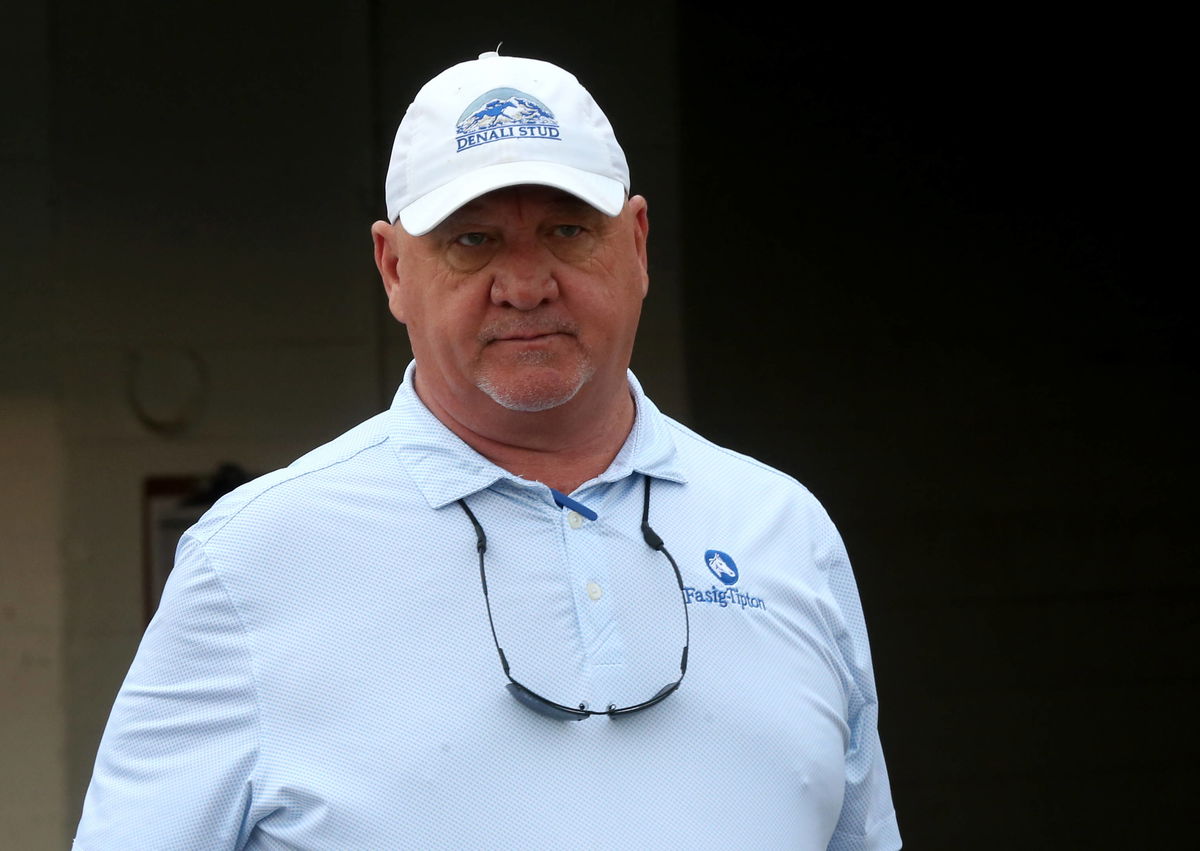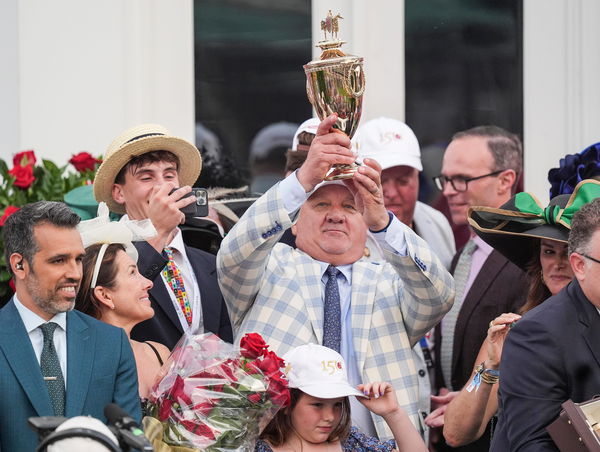
Imago
Trainer Kenny McPeek watches his horse Kentucky Derby hopeful Render Judgement during morning workouts as they prepares for the 151st running of the Kentucky Derby at Churchill Downs, Thursday, May 1, 2025 in Louisville, Kentucky. PUBLICATIONxINxGERxSUIxAUTxHUNxONLY KYP20250501006 JOHNxSOMMERSxII

Imago
Trainer Kenny McPeek watches his horse Kentucky Derby hopeful Render Judgement during morning workouts as they prepares for the 151st running of the Kentucky Derby at Churchill Downs, Thursday, May 1, 2025 in Louisville, Kentucky. PUBLICATIONxINxGERxSUIxAUTxHUNxONLY KYP20250501006 JOHNxSOMMERSxII
The Triple Crown series, which includes the Kentucky Derby, Preakness Stakes, and Belmont Stakes, has always been known as the ultimate challenge for a three-year-old Thoroughbred’s skill and stamina. Still, the tough schedule, with only two weeks between the Derby and Preakness and three weeks to the Belmont, has been getting more attention lately.
Watch What’s Trending Now!
Some critics say that the tight schedule puts tradition ahead of horse welfare, pushing young horses to their limits and not allowing much time for them to recover. This debate has become more pressing lately, especially with trainers like 2024 Kentucky Derby-winning trainer Kenny McPeek raising concerns about the risks that come with the current situation.
ADVERTISEMENT
Recently, the Daily Racing Form reported that McPeek highlighted the psychological and ethical pressures modern trainers face, stating, “Horse trainers are very tentative now. We don’t want to make a mistake. You don’t want anything to go wrong. It’s devastating when it goes wrong. If you run back in two weeks and a horse breaks down, oof. It’s hard to even think about. But I’ll tell you what, if that does happen, there’s going to be a big push to change it.”
The trainer is really highlighting a change in the atmosphere of the sport, especially with the shadow of tragedies like Barbaro’s breakdown at the 2006 Preakness hanging over the industry.
ADVERTISEMENT
McPeek’s warning is pretty clear: if there’s another big incident, the industry might have to take action. McPeek’s view shows that a growing number of individuals are starting to think the Triple Crown’s requirements might not really fit with today’s focus on keeping horses healthy and happy for the long haul.
ADVERTISEMENT

Imago
Syndication: The Courier-Journal Trainer Kenny McPeek holds the Gold Cup with wife Sherri with daughter Ann wearing a 150th Kentucky Derby hat below him in the Winner s Circle after Mystik Dan won the 2024 Kentucky Derby at Churchill Downs Saturday, May 4, 2024 in Louisville, Kentucky. Louisville , EDITORIAL USE ONLY PUBLICATIONxINxGERxSUIxAUTxONLY Copyright: xMattxStone/ThexCourierxJournalx USATSI_23196135
The trainer is suggesting that the sport have longer breaks between races—maybe four to five weeks—which is similar to what other sports have done to help reduce the risk of injuries. So, for McPeek, just how magical was the 2024 Kentucky Derby?
ADVERTISEMENT
The Kentucky Derby was one of his biggest achievements
The 2024 Kentucky Derby was quite the event, marking a memorable and thrilling chapter in America’s most famous horse race, featuring one of the tightest finishes we’ve seen in its 150-year history. Mystik Dan, an 18-1 longshot trained by Kenny McPeek, pulled off a thrilling win by a nose in a dramatic three-horse photo finish against Sierra Leone and Forever Young. It was the first finish like this since 1947!
Jockey Brian Hernandez Jr. made a smooth move along the rail, finding a tight spot in the stretch to take the lead, and then managed to fend off two fast-approaching competitors right at the end. What a weekend it was at Churchill Downs! McPeek really made history by not only winning the Kentucky Derby but also taking home the Kentucky Oaks with Thorpedo Anna. It’s been quite a while since a trainer pulled off that double, all the way back to 1952!
ADVERTISEMENT
After the race, the trainer praised the jockey, saying, “Brian gave us a huge opportunity because we saved ground, saved ground, saved ground. And when you look at that photo finish, I think we needed all of it to hold off the two second- and third-place horses.” For McPeek, the win felt like a fairytale ending—he celebrated it with both tears and laughter.
ADVERTISEMENT
ADVERTISEMENT
ADVERTISEMENT